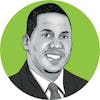 See
more of the story
See
more of the story
On Thursday, the Camp Nenookaasi homeless encampment was removed by the city of Minneapolis. It was a familiar outcome. A homeless encampment exists in a space for a time, and then it's removed. That has been the pattern.
"As seen today with some encampment residents moving to a new site, the City alone does not have the resources available to address multiple encampment sites at once," Minneapolis officials said in a statement.
"The City and its residents are seeing first-hand the reason there needs to be a coordinated approach between the City, County, and State — the City cannot do this work on its own. All government entities must work together to address the movement of our unsheltered residents and the long-term provision of shelter, housing, and social services."
In theory, a state that just announced a $2.4 billion surplus should never have a population of unhoused individuals without permanent places to live. But I also know the solutions are complex. A capitalist system that rewards personal wealth over community concern is at the root of a homeless population that grew more than 12% nationally from 2022 to 2023, per U.S. government data. But addiction, mental health and other personal challenges contribute to the obstacles, too.
While I can't offer a universal answer that feels immediately attainable, I am certain the people who lived at Camp Nenookaasi are part of the Twin Cities, too.
Why aren't they discussed that way?
The language around the local homeless population suggests that every member of that encampment is a resident of another community. Some place that's not quite Minneapolis or St. Paul. Over the course of the conversation about solutions, they've been "othered."
Nah, they're addicts. They're a byproduct of their choices. They're a nuisance. That's what their detractors say.
You rarely hear them described as people.
Some folks judge the homeless population according to their own beliefs about their proximity to their predicaments. It's a pompous attitude that ignores reality and privilege. The struggles that have beset some members of the homeless population affect others, too. Some folks just have more economic security than most. But imagine if that didn't exist.
Imagine if you couldn't crash on a friend's couch or if you didn't have relatives who could support you in tough times. Imagine if a job loss unraveled your entire life and left you without a place to stay. Imagine if addiction or mental health challenges disrupted your whole world and spiraled into a chapter of homelessness.
There is an arrogance that has convinced far too many that they would never find themselves in the same scenario.
The people I've known, however, who've been on the brink of experiencing homelessness were fighters who always wanted more than their current circumstances had presented. They had made choices. But the lie about "choices have consequences" is that those consequences are often skewed according to class, race and other factors.
And the people who love to use the homeless community as fodder for a dialogue about morality also have the greatest safety nets. They are not exempt, however, from the obstacles they blame for the current plight of the folks who live in Camp Nenookaasi and elsewhere. Neither are their families.
Two of my high school friends struggled with and ultimately lost their lives to addiction. In both cases, they were on the verge of getting clean. They had battled for their sobriety. They had grown. And then, a setback led to their deaths. Neither reached age 25.
They both came from two-parent homes. They had never experienced poverty or homelessness. They didn't need money. Their lives weren't tangibly fragile. But they had grappled with the same monster that so many in that homeless encampment have grappled with, and they, like them, sought solace and peace that always seemed to elude them. Until the end.
In the homeless encampments of the Twin Cities, I do not see a collection of mistakes or bad decisions or people who've given up or failed to make better choices.
I only see human beings who — at this stage of their lives — have encountered turbulence that's complicated their ability to obtain and sustain permanent housing. I only see members of a community who deserve an opportunity to be measured according to the only bond that matters: our humanity. I only see people.
The only way to shape the narrative about the individuals who are unhoused in the Twin Cities is to change the language in our conversations about them.
They've been discussed as a collection of visitors who — to some in this community — only create harm. Because it's easier that way.
If they're not viewed simply as Minnesotans enduring a difficult time, then it's not hard to dismiss them as a problem — and something less than a neighbor.
I'm just not sure which tenet of the Minnesota Nice philosophy that attitude reflects.




